 |

|
 |
buber.net > Basque > Features > Interviews > Interviews
|
From time to time, I will be interviewing people in the Basque community,
both in the diaspora and in the Basque Country, who make important
contributions to Basque culture. These might be historians, new makers,
artists, or anyone who is a part of the greater Basque community. The idea
is to get their perspectives on Basque culture and maybe introduce more
people to the work that they are
doing.
If anyone would like to recommend someone to be intereviewed,
please contact me.
|
Making Dreams Come True: An Interview with Argia Beristain
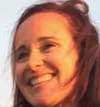
Argia Beristain was one of the primary driving forces behind the Basque Soccer Friendly that brought two professional soccer teams -- including Athletic Bilbao -- to Boise, Idaho in the summer of 2015. In this interview, she describes how that event came to be, her experiences in organizing such as massive event, and her thoughts on the different Basque Communities she has been part of over the years.
|
That Old Bilbao Moon: An Interview with Joseba Zulaika
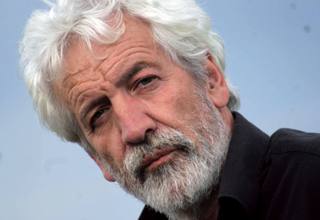
The 1960s were a turbulent time in Basque culture. A generation of young Basques, disillusioned with the failure of their fathers' generation to establish an independent Basque nation in the aftermath of the Spanish Civil War, struggled to find their own place in Basque history. In his book That Old Bilbao Moon, Joseba Zulaika traces the intellectual and philosophical paths of his generation, using the city of Bilbao as a parallel metaphor for both the struggles as well as the redemption of his generation. In this interview, Joseba discusses the place of Lehendakari Aguirre in modern Basque politics, his generation's view of Christianity, and his own evolving views of the Guggenheim Museum in Bilbao.
|
Discovering Your Own Worth: An Interview with Delphine Pontvieux
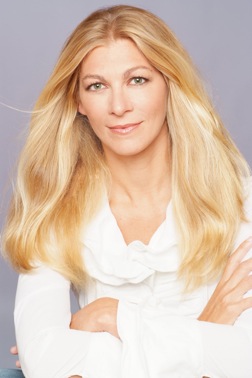
In Delphine Pontvieux's new novel ETA- Estimated Time of Arrest, her main character, Lartaun, is forced to flee his native Basque Country when he is accused of a crime he didn't commit. Living under an assumed name in Mexico, he is given a chance to return by his childhood friend Patxi, but with a price.
Estimated Time of Arrest is a fast-paced action thriller, combining politics, romance, and the best of police dramas into one superb tale. In this interview, Delphine describes her motivations, her interactions with reknowned musician Fermin Muguruza, and her experiences in writing and self-publishing her first novel.
|
Mikel Morris, Part II
 Mikel Morris, an American with dual US/Spanish nationality living in Zarautz, Spain, has written the definitive Basque-English dictionary and is currently working on the Morris Magnum which promises to be the largest bilingual Basque dictionary in existence.
Mikel Morris, an American with dual US/Spanish nationality living in Zarautz, Spain, has written the definitive Basque-English dictionary and is currently working on the Morris Magnum which promises to be the largest bilingual Basque dictionary in existence.
In the first part of this interview, Mikel shared his thoughts and hard-hitting observations on
the status of the Basque language, the efforts the Basque government is making to promote Euskara, and his own tribulations in getting his dictionary published.
In this part 2, Mikel describes how difficult it has been for him to work within the Basque system, his views of the future of the Basque language and the bright spots in the current efforts to promote the Basque language, and gives an update on the status of the second edition of his Magnum dictionary.
|
Christine Bender
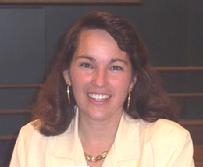 Christine Echeverria Bender is a writer who's historical novels have focused on the lives and adventures of prominent Basques during the Age of Discovery. She has written about Columbus' voyage in Challenge the Wind, Juan Sebastian de Elcano's role in Magellan's circumnavigation of the world in Sails of Fortune, and, in her most recent novel The Whaler's Forge, the Basque whalers who explored the North American east coast. Here, she shares with us how she researches the various eras and people she writes about, her inspiration, and gives us a glimpse into what her next novel will be about.
Christine Echeverria Bender is a writer who's historical novels have focused on the lives and adventures of prominent Basques during the Age of Discovery. She has written about Columbus' voyage in Challenge the Wind, Juan Sebastian de Elcano's role in Magellan's circumnavigation of the world in Sails of Fortune, and, in her most recent novel The Whaler's Forge, the Basque whalers who explored the North American east coast. Here, she shares with us how she researches the various eras and people she writes about, her inspiration, and gives us a glimpse into what her next novel will be about.
|
Mikel Morris, Part I
 Some of you may recognize the name Mikel Morris, as he has written the definitive Basque-English dictionary, the Morris Student Plus.
Mikel, born in the United States, has lived in the Basque Country since 1978. As a foreigner who has immersed himself in to Basque culture
and Euskara, he has a unique perspective on the language. In this interview, Mikel describes his tribulations in getting
his dictionary published, shares his thoughts on the Basque government's policy regarding Euskara, and teases us with hints on his
next project, the Morris Magnum, which promises to be the largest bilingual Basque dictionary yet.
Some of you may recognize the name Mikel Morris, as he has written the definitive Basque-English dictionary, the Morris Student Plus.
Mikel, born in the United States, has lived in the Basque Country since 1978. As a foreigner who has immersed himself in to Basque culture
and Euskara, he has a unique perspective on the language. In this interview, Mikel describes his tribulations in getting
his dictionary published, shares his thoughts on the Basque government's policy regarding Euskara, and teases us with hints on his
next project, the Morris Magnum, which promises to be the largest bilingual Basque dictionary yet.
|
Guillermo Zubiaga
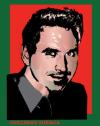 Guillermo Zubiaga is a graphic artist living in New York, though he was born and grew up in the Basque Country. We met thro
ugh my website, when Guillermo contacted me about a link to his site. In this interview, Guillermo describes growing up in
post-Franco Euskal Herria, his experiences in the US comic book industry, and his current project about a comic book on the
history of Basque whaling.
Guillermo Zubiaga is a graphic artist living in New York, though he was born and grew up in the Basque Country. We met thro
ugh my website, when Guillermo contacted me about a link to his site. In this interview, Guillermo describes growing up in
post-Franco Euskal Herria, his experiences in the US comic book industry, and his current project about a comic book on the
history of Basque whaling.
|
Pedro Oiarzabal
 For minority languages and cultures such as Basque, questions of preserving identity are crucial for the long term survival of the culture. However, without a basic understanding of what composes identity, of how identity is expressed, efforts to preserve culture will only be partially successful. Pedro Oiarzabal recently completed his PhD focusing precisely on what it means to be Basque all over the world. In this interview, Pedro shares his thoughts on what role the Internet plays in identity and community.
For minority languages and cultures such as Basque, questions of preserving identity are crucial for the long term survival of the culture. However, without a basic understanding of what composes identity, of how identity is expressed, efforts to preserve culture will only be partially successful. Pedro Oiarzabal recently completed his PhD focusing precisely on what it means to be Basque all over the world. In this interview, Pedro shares his thoughts on what role the Internet plays in identity and community.
|
Xabier Ormaetxea
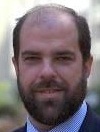 Long time visitors of Buber's Basque Page will recognize Xabier Ormaetxea. He was the driving force behind the Surname Research Project that was such a big part of Buber's Basque Page in the early days. Those surname pages are still among the most popular areas of Buber's Basque Page. However,
beyond his great interest in genealogy, Xabier was also a member of the Basque Parliament for nearly 20 years.
Long time visitors of Buber's Basque Page will recognize Xabier Ormaetxea. He was the driving force behind the Surname Research Project that was such a big part of Buber's Basque Page in the early days. Those surname pages are still among the most popular areas of Buber's Basque Page. However,
beyond his great interest in genealogy, Xabier was also a member of the Basque Parliament for nearly 20 years.
Here, Xabier describes the work of the Basque Government, why he is so interested in genealogy, and his current work helping orphans in the Ukraine.
|
Gloria Totoricagüena
 Dr. Gloria Totoricagüena is an expert in the Basque diaspora. She has written a number of books on the diaspora and the establishment of Basque communities in a number of places. She was recently named Director of the Center for Basque Studies at the University of Nevada, Reno, a post she will hold for the next three years. In this interview, I asked her about growing up Basque,
her plans for the Center, and her views on what it means to be Basque and the role that the Basque diaspora has in the future of the Basque Country.
Dr. Gloria Totoricagüena is an expert in the Basque diaspora. She has written a number of books on the diaspora and the establishment of Basque communities in a number of places. She was recently named Director of the Center for Basque Studies at the University of Nevada, Reno, a post she will hold for the next three years. In this interview, I asked her about growing up Basque,
her plans for the Center, and her views on what it means to be Basque and the role that the Basque diaspora has in the future of the Basque Country.
|
This page is part of Buber's Basque Page and is maintained by Blas Uberuaga.
Please report any problems or suggestions to Blas.
Eskerrik asko!
|
|
 |










 Mikel Morris, an American with dual US/Spanish nationality living in Zarautz, Spain, has written the definitive Basque-English dictionary and is currently working on the Morris Magnum which promises to be the largest bilingual Basque dictionary in existence.
Mikel Morris, an American with dual US/Spanish nationality living in Zarautz, Spain, has written the definitive Basque-English dictionary and is currently working on the Morris Magnum which promises to be the largest bilingual Basque dictionary in existence.
 Christine Echeverria Bender is a writer who's historical novels have focused on the lives and adventures of prominent Basques during the Age of Discovery. She has written about Columbus' voyage in Challenge the Wind, Juan Sebastian de Elcano's role in Magellan's circumnavigation of the world in Sails of Fortune, and, in her most recent novel The Whaler's Forge, the Basque whalers who explored the North American east coast. Here, she shares with us how she researches the various eras and people she writes about, her inspiration, and gives us a glimpse into what her next novel will be about.
Christine Echeverria Bender is a writer who's historical novels have focused on the lives and adventures of prominent Basques during the Age of Discovery. She has written about Columbus' voyage in Challenge the Wind, Juan Sebastian de Elcano's role in Magellan's circumnavigation of the world in Sails of Fortune, and, in her most recent novel The Whaler's Forge, the Basque whalers who explored the North American east coast. Here, she shares with us how she researches the various eras and people she writes about, her inspiration, and gives us a glimpse into what her next novel will be about.
 Some of you may recognize the name Mikel Morris, as he has written the definitive Basque-English dictionary, the Morris Student Plus.
Mikel, born in the United States, has lived in the Basque Country since 1978. As a foreigner who has immersed himself in to Basque culture
and Euskara, he has a unique perspective on the language. In this interview, Mikel describes his tribulations in getting
his dictionary published, shares his thoughts on the Basque government's policy regarding Euskara, and teases us with hints on his
next project, the Morris Magnum, which promises to be the largest bilingual Basque dictionary yet.
Some of you may recognize the name Mikel Morris, as he has written the definitive Basque-English dictionary, the Morris Student Plus.
Mikel, born in the United States, has lived in the Basque Country since 1978. As a foreigner who has immersed himself in to Basque culture
and Euskara, he has a unique perspective on the language. In this interview, Mikel describes his tribulations in getting
his dictionary published, shares his thoughts on the Basque government's policy regarding Euskara, and teases us with hints on his
next project, the Morris Magnum, which promises to be the largest bilingual Basque dictionary yet.
 Guillermo Zubiaga is a graphic artist living in New York, though he was born and grew up in the Basque Country. We met thro
ugh my website, when Guillermo contacted me about a link to his site. In this interview, Guillermo describes growing up in
post-Franco Euskal Herria, his experiences in the US comic book industry, and his current project about a comic book on the
history of Basque whaling.
Guillermo Zubiaga is a graphic artist living in New York, though he was born and grew up in the Basque Country. We met thro
ugh my website, when Guillermo contacted me about a link to his site. In this interview, Guillermo describes growing up in
post-Franco Euskal Herria, his experiences in the US comic book industry, and his current project about a comic book on the
history of Basque whaling.
 For minority languages and cultures such as Basque, questions of preserving identity are crucial for the long term survival of the culture. However, without a basic understanding of what composes identity, of how identity is expressed, efforts to preserve culture will only be partially successful. Pedro Oiarzabal recently completed his PhD focusing precisely on what it means to be Basque all over the world. In this interview, Pedro shares his thoughts on what role the Internet plays in identity and community.
For minority languages and cultures such as Basque, questions of preserving identity are crucial for the long term survival of the culture. However, without a basic understanding of what composes identity, of how identity is expressed, efforts to preserve culture will only be partially successful. Pedro Oiarzabal recently completed his PhD focusing precisely on what it means to be Basque all over the world. In this interview, Pedro shares his thoughts on what role the Internet plays in identity and community.
 Long time visitors of Buber's Basque Page will recognize Xabier Ormaetxea. He was the driving force behind the Surname Research Project that was such a big part of Buber's Basque Page in the early days. Those surname pages are still among the most popular areas of Buber's Basque Page. However,
beyond his great interest in genealogy, Xabier was also a member of the Basque Parliament for nearly 20 years.
Long time visitors of Buber's Basque Page will recognize Xabier Ormaetxea. He was the driving force behind the Surname Research Project that was such a big part of Buber's Basque Page in the early days. Those surname pages are still among the most popular areas of Buber's Basque Page. However,
beyond his great interest in genealogy, Xabier was also a member of the Basque Parliament for nearly 20 years.  Dr. Gloria Totoricagüena is an expert in the Basque diaspora. She has written a number of books on the diaspora and the establishment of Basque communities in a number of places. She was recently named Director of the Center for Basque Studies at the University of Nevada, Reno, a post she will hold for the next three years. In this interview, I asked her about growing up Basque,
her plans for the Center, and her views on what it means to be Basque and the role that the Basque diaspora has in the future of the Basque Country.
Dr. Gloria Totoricagüena is an expert in the Basque diaspora. She has written a number of books on the diaspora and the establishment of Basque communities in a number of places. She was recently named Director of the Center for Basque Studies at the University of Nevada, Reno, a post she will hold for the next three years. In this interview, I asked her about growing up Basque,
her plans for the Center, and her views on what it means to be Basque and the role that the Basque diaspora has in the future of the Basque Country.





